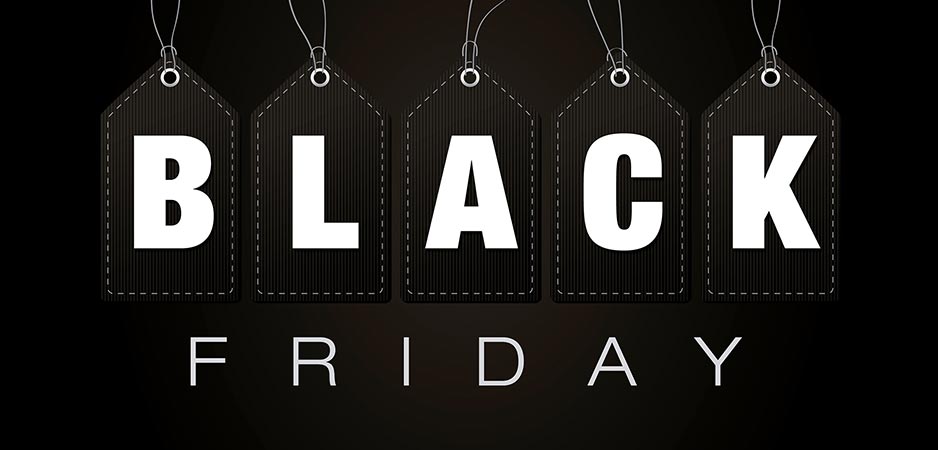US President Donald Trump announced a true bombshell this week when he informed the crowd he was addressing at a speech in Florida that it was time to prepare their defense in the growing “war on Thanksgiving.” Trump didn’t bother to mention who was waging this war, possibly because he simply didn’t know. But like George W. Bush’s “war on terror” or the “war on Christmas” that Fox News has been promoting for some time, the “war on Thanksgiving” appears the work of some kind of axis of evil and is bound to last for years, if not decades.
The enemy is hiding, but we know he is there. This time, it isn’t about flying planes into buildings or suicide bombers. It isn’t about claiming territories or controlling resources, like conventional wars. For that very reason, it’s more pernicious. What’s even more disturbing is the fact that no one has any idea about who is waging the war or even why they would want to do so.
Thanks to Trump’s commitment to defend essential institutions — i.e., not the UN, not the Paris Climate Accord, certainly not the Iran deal, nor any existing trade agreement or nuclear arms control treaties — the American nation, led by its president, is now focused on the mission of maintaining the name “Thanksgiving” to designate the fourth Thursday in the US.
Because, as every American understands, the rest of the world hasn’t much to give thanks for, the combat to save Thanksgiving is restricted to the area within the US borders. Europeans, Africans, Asians, Latin Americans and Pacific islanders needn’t feel unduly concerned. But some Americans would be wise to take heed. As soon as the identities of those who clamor for changing the name of the November holiday are known, there is little doubt that the White House will insist that they are deported to the other side of the border wall with Mexico… once it is completed.
Trump’s warning reminds us here at The Daily Devil’s Dictionary that, before defending the name of the holiday, the US needs, above all, to clarify the meaning of the word “Thanksgiving,” a task we shall now undertake.
Here is today’s 3D definition:
Thanksgiving:
The day before Black Friday, which in the final stages of capitalism will most likely be renamed “Thanksbuying” by a future government
Contextual Note
Though Thanksgiving has maintained its reputation as the evening that brings together American families and allows them to self-destruct, no one can doubt that Black Friday has now eclipsed Thanksgiving in sheer patriotic importance. What better proof than the triumph of Black Friday across the globe, in countries where Thanksgiving doesn’t exist? Europeans have no idea what the US holiday of Thanksgiving is all about, but over the past 10 days, they have been assaulted from every direction by the advertising of commercial interests promising incredible Black Friday deals.
Most of the media have mocked Trump’s belief in an imaginary threat to Thanksgiving. Nevertheless, in fairness to the president, it should be noted that for the past 10 years, there has been a growing movement to promote a celebration called Friendsgiving. Its proponents are mostly millennials, but also includes the considerably older “Friends” actress, Jennifer Aniston. They claim that Friendsgiving is meant to complement Thanksgiving and occurs a week or so earlier.
But anyone with even a slight touch of paranoid creativity (a category that may include Trump) will understand that behind Friendsgiving is a subversive and sinister attempt to replace Thanksgiving. After all, one couldn’t put it past the wily millennials (few of whom vote for Trump) to prefer celebrating the ideal of friendship (as demonstrated by the TV series that Aniston starred in), rather than a holiday designed in the 19th century to paper over the genocidal foundations of US culture but which now serves principally to highlight the deepening political incompatibility within biological families, a state of existential divisiveness that also stretches across the fabric of American society as a whole.
Historical Note
Everyone should be aware of the history — or rather the mythos — of Thanksgiving. This is marked by the faux nostalgia of the last time British colonizers broke bread with Native Americans before realizing that the only logical way of achieving peaceful co-existence would be to undertake a centuries-long campaign of genocide, which, at the height of its powers, assumed the name of “manifest destiny.”
A thought experiment in counterfactual history might lead to the following conclusion: Following the feast that brought the two populations together on that evening in Massachusetts Bay, had the Indians been more polite in drafting their thank you notes (in their best polished English), then perhaps the anguish, suffering and despoliation that resulted from serial wars of conquest could have been avoided or at least attenuated. Clearly a missed opportunity.
History being what it is — basically, for Americans who are focused on the future, the narrative of dramas from the past that in no way concern them today — today’s psychological trauma associated with Thanksgiving shouting matches over the dinner table has nothing to do with eventual misgivings or guilt about the injustices done to native civilizations. Instead, it focuses on the friction between the varying political loyalties of people who, one day a year, have to come to grips with the uncomfortable fact that they possess something called “family links.” Discovering which members of the family have been programmed by Fox News and which by CNN or even Democracy Now, or who listens to Rachel Maddow and who follows Rush Limbaugh, will inevitably produce predictable emotional fireworks and the occasional gunshot, especially less than 12 months before the next presidential election featuring Donald Trump.
All this has led to giving bad PR to Thanksgiving, the quintessential American holiday, and in some sense the sign of US exceptionalism. But the real reason Black Friday has now eclipsed Thanksgiving is much simpler. Over the past century, holidays have become occasions for spending money and buying things. In commercial terms, Thanksgiving serves the narrow purpose of selling frozen turkeys, cans of cranberry sauce and pumpkins to make pies. That contributes very little to the consumer economy.
Something clearly had to be done. Thanks to the internet, whatever could be done would be deployed on a grand scale. So, on one fateful day less than 20 years ago, a group of marketing geniuses noticed that, year after year, Christmas falls approximately one month later. They reasoned that to relieve the bad vibes associated with Thanksgiving political debates, the key consisted of inviting American families, exhausted from an evening of throwing invectives at one another, to dream of doing something they could consider — unlike politics — to be truly productive: saving money on the purchase of the gifts they would soon need to offer one another for Christmas, Hanukkah or Kwanza.
It was a brilliant strategy because, even if the vendors lost money on the selected discounted items, the operation shifted the entire population’s focus to the duty of buying things over the following four weeks.
Consumerism is, after all, the one thing that unites everyone in the US, despite their political and religious differences.
*[In the age of Oscar Wilde and Mark Twain, another American wit, the journalist Ambrose Bierce, produced a series of satirical definitions of commonly used terms, throwing light on their hidden meanings in real discourse. Bierce eventually collected and published them as a book, The Devil’s Dictionary, in 1911. We have shamelessly appropriated his title in the interest of continuing his wholesome pedagogical effort to enlighten generations of readers of the news.]
The views expressed in this article are the author’s own and do not necessarily reflect Fair Observer’s editorial policy.
Support Fair Observer
We rely on your support for our independence, diversity and quality.
For more than 10 years, Fair Observer has been free, fair and independent. No billionaire owns us, no advertisers control us. We are a reader-supported nonprofit. Unlike many other publications, we keep our content free for readers regardless of where they live or whether they can afford to pay. We have no paywalls and no ads.
In the post-truth era of fake news, echo chambers and filter bubbles, we publish a plurality of perspectives from around the world. Anyone can publish with us, but everyone goes through a rigorous editorial process. So, you get fact-checked, well-reasoned content instead of noise.
We publish 2,500+ voices from 90+ countries. We also conduct education and training programs
on subjects ranging from digital media and journalism to writing and critical thinking. This
doesn’t come cheap. Servers, editors, trainers and web developers cost
money.
Please consider supporting us on a regular basis as a recurring donor or a
sustaining member.
Will you support FO’s journalism?
We rely on your support for our independence, diversity and quality.






